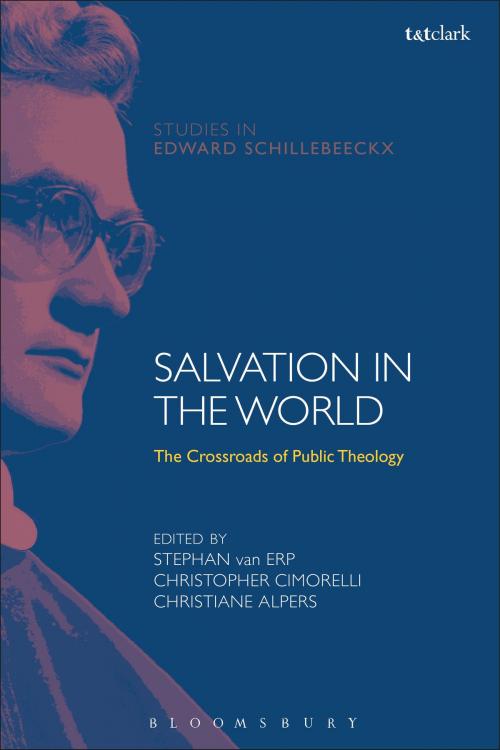Salvation in the World
The Crossroads of Public Theology
Nonfiction, Religion & Spirituality, Theology, Christianity| Author: | ISBN: | 9780567678171 | |
| Publisher: | Bloomsbury Publishing | Publication: | September 7, 2017 |
| Imprint: | T&T Clark | Language: | English |
| Author: | |
| ISBN: | 9780567678171 |
| Publisher: | Bloomsbury Publishing |
| Publication: | September 7, 2017 |
| Imprint: | T&T Clark |
| Language: | English |
What happens when Edward Schillebeeckx's theology crosses paths with contemporary public theology? This volume examines the theological heritage that Schillebeeckx has left behind, as well as it critically assesses its relevance for temporary theological scene.
In tracing the way(s) in which Schillebeeckx observed and examined his own context's increasing secularization and concomitant development toward atheism, the contributors to this volume indicate the potential directions for a contemporary public theology that pursues the path which Schillebeeckx has trodden.
The essays in the first part of this volume indicate a different theological self-critique undertaken in response to developments in the public sphere. This is followed by a thorough examination of the degree to which Schillebeeckx succeeded in leading Christian theology ahead without merely accommodating the Christian tradition to current societal trends. The third part of the volume discusses the issues of climate change, social conceptions of progress, as well as the evolutionary understandings of the origins and purpose of religions. The final part examines Schillebeeckx's soteriology to contemporary discussions about wholeness.
What happens when Edward Schillebeeckx's theology crosses paths with contemporary public theology? This volume examines the theological heritage that Schillebeeckx has left behind, as well as it critically assesses its relevance for temporary theological scene.
In tracing the way(s) in which Schillebeeckx observed and examined his own context's increasing secularization and concomitant development toward atheism, the contributors to this volume indicate the potential directions for a contemporary public theology that pursues the path which Schillebeeckx has trodden.
The essays in the first part of this volume indicate a different theological self-critique undertaken in response to developments in the public sphere. This is followed by a thorough examination of the degree to which Schillebeeckx succeeded in leading Christian theology ahead without merely accommodating the Christian tradition to current societal trends. The third part of the volume discusses the issues of climate change, social conceptions of progress, as well as the evolutionary understandings of the origins and purpose of religions. The final part examines Schillebeeckx's soteriology to contemporary discussions about wholeness.















